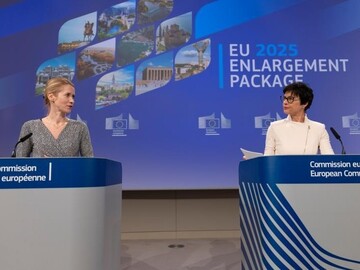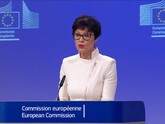
The European Commission recommends that Moldova continue modernizing its tax administration next year, aligning excise and VAT policies with EU standards, and strengthening measures against tax evasion
This is stated in the European Commission's Report on the progress of reforms and compliance with Moldova's EU accession criteria, which is published alongside the annual EU enlargement package. The document notes that Moldova has a certain level of preparedness in the tax sector and has made good progress during the reporting period in aligning national legislation with the EU acquis—in the areas of direct and indirect taxes, excise duties, and the digitalization of tax administration. Moldova has also strengthened its capacity for administrative cooperation and mutual assistance. However, Moldova has partially implemented some of the EU recommendations, while others remain relevant. For example, Moldova has made progress in harmonizing its indirect tax legislation with EU standards. In June 2025, provisions on a VAT reverse charge mechanism for electricity and gas trade were introduced into the Tax Code. Once they enter into force on January 1, 2026, they will simplify transactions for suppliers and traders and reduce the administrative burden associated with VAT management. Currently, Moldova has a standard VAT rate of 20%, a reduced rate of 8%, and certain exemptions and refunds, partially aligning with EU legislation. In the area of excise taxes, in June 2025, the government approved a draft law that partially harmonizes national regulations with EU directives governing the general principles, structure, and rates of excise taxes on tobacco and alcohol products. However, excise rates on tobacco products have not yet been harmonized with EU regulations, and there has been no progress in harmonizing excise taxes on energy products. It is also noted that Moldova must adapt its legislation and IT systems to EU requirements for the implementation of the Excise goods movement and control system (EMCS) and the System for the exchange of excise data (SEED)—an electronic registry of economic operators authorized to trade excisable goods. These measures will improve transparency and control over the circulation of excisable goods, as well as the level of compliance with the law. In April 2025, the government also approved a regulation on a tobacco product tracking and accounting system based on the EU Tobacco Directive. Once in force in 2026, this system will significantly strengthen the fight against tobacco smuggling and improve the efficiency of tax revenue collection. In terms of direct taxation, Moldova applies a flat rate of 12% for income and corporate tax, as well as a preferential rate of 7% for residents of IT parks and free economic zones. However, Moldova has not yet harmonized its legislation with EU directives on merger taxation, cross-border reorganizations, and parent-subsidiary relationships, which are expected to enter into force upon accession. Harmonization with the Anti-Avoidance and Tax Avoidance Directive (ATAD) is also incomplete. Moldova is a member of the Organization for Economic Cooperation and Development (OECD)'s Inclusive Framework for Combating Base Erosion and Profit Shifting (BEPS), but has not yet implemented a global minimum tax rate for multinational corporations and large domestic groups. Following an OECD fact-finding mission in December 2024, Moldova began developing a roadmap for implementing BEPS provisions. In the area of administrative cooperation, Moldova has concluded double taxation agreements with 26 EU countries and has begun implementing the Multilateral agreement of competent authorities on the automatic exchange of financial information. "In terms of operational and digital transformation, the State Tax Service is implementing the Tax Compliance Program for 2025, focusing on the trade, retail, industry, and construction sectors. Consultation visits and tax simplification measures contribute to increasing voluntary compliance with tax obligations. The STS IT Systems Development Program for 2025–2027, aimed at ensuring interconnectivity and compatibility with EU tax systems, has been prepared but not yet approved. Priorities remain the development of IT infrastructure, the automation of tax risk management, and the implementation of risk-based audits," the report states. The European Commission recommends that Moldova harmonize excise and VAT legislation with EU standards next year in order to minimize distortions of competition, legal uncertainties, and prevent cases of tax evasion, double taxation, and fraud. Strengthening measures against tax avoidance and increasing tax revenues are also recommended, including aligning legislation with the EU Anti-Tax avoidance and tax avoidance directive (ATAD), developing a roadmap for implementing BEPS (Base Erosion and Profit Shifting) provisions, and conducting a comprehensive review of the tax system. Another recommendation is to continue modernizing tax administration, including by implementing an automated tax risk management system that will support both voluntary and enforced tax compliance. // 05.11.2025 — InfoMarket







